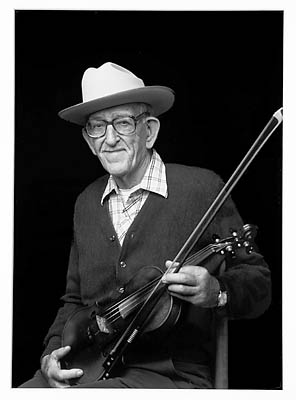Annotation:Rye Straw (1)
X:1 T:Rye Straw [1] M:2/4 L:1/8 R:Reel B:Ford - Traditional Music in America (1940, p. 47) Z:AK/Fiddler's Companion K:D [A,E]A/A/ FA/A/|[A,E]A/A/ F/E/D/z/|[A,E]A/A/ FA/A/|c/d/e/d/ c/B/A/z/:| |:c/ee/ ee/e/|d/d/e/g/ f/e/d/z/|c/ee/ eB/c/|d/B/A/G/ FD/D/:| |:f/af/ a>a|f/g/a/g/ f/e/d|f/af/ a>f|g/f/e/d/ c/A/A| c/ee/ eA/A/|d/d/e/g/ f/e/d|c/ee/ eB/c/|d/B/A/G/ F/D/D:|]
RYE STRAW [1]. AKA and see "Alabama Waltz" (Mississippi title), “Big Fish,” “Black My Boots and Go See the Widow,” "Dog Shit a Rye Straw," "Dog in the Rye Straw," "Dog in Difficulty (The)," "Joke on the Puppy (The)," "Lady's Fancy," "Ladies Fancy (4)," "Preacher's Favorite," "Unfortunate Pup (The)," "Unfortunate Dog (The)," "Whoop from Arkansas (A)," Old-Time, Breakdown. USA; North Carolina, Georgia, Alabama, Mississippi, Tennessee, Kentucky, West Virginia, Virginia, Indiana, Arkansas. D Major (most versions): A Major (Frank Kittrell, Silberberg): G Major (Doc Roberts). Standard or ADae (Frank Kittrell) tunings (fiddle). AA’B (Titon): AABB (Brody, Kittrell, Spadaro): ABC (Silberberg): AA'BBCC (Phillips): AABBCC (Ford): ABCCB' (Krassen): AABCCCCDD (Reiner & Anick). "Rye Straw" is a reel characterized by a shifting tonal center from D major to A mixolydian, with some versions emphasizing one or another of the centers. The melody was known throughout the South and Midwest under a variety of (mostly related) titles, but appears to have first been published in the 1880's by George Coe Co. of Boston, Mass., as "Whoop from Arkansas (A)" and later by Missouri physician W.H. Morris (Old Time Violin Melodies, 1927, No. 28) as "Acrobat." Marion Thede published Ozarks region versions as "Preacher's Favorite" and "Ladies Fancy (4)" in her The Fiddle Book (1960). The title "Rye Straw" appears in two of the lists of fiddle tunes in the Berea Tune Lists, collected from informants from east Tennessee and east Kentucky as a student project in 1915 under the auspices of Prof. John F. Smith.
Charles Wolfe (1983) states 20th century fiddler Doc Roberts [1] (1897-1978, Ky) used to sing "a scatological ditty involving a dog, a grubbing hoe, and a straw" to the tune, from which several of the alternate titles appear to stem from. Alan Jabbour notes "it refers to a cycle of vulgar jingles that conjure up a dog excreting fantastical things." Joel Shimberg learned the following words to “Rye Straw” from Missouri fiddle tune collector Bob Christeson (1911-1922):
Dog shit a rye straw, dog shit a needle,
Dog shit a little boy playing on a fiddle.
Dog shit a rye straw, dog shit a minnow,
Dog shit a catfish big enough for dinner.
Dog shit a rye straw, dog shit a fiddle bow,
Dog shit a little boy working with a grubbing hoe.
These lyrics were sung to a different melody called “Pigtown Fling” by a Michigan fiddler (via Paul Gifford), but are clearly a variation of the above.
Dog shit a rye straw, dog shit a riddle-o,
Dog shirt a rye straw longer than a fiddle bow.
Dog shit a catfish longer than a minner-o,
Dog shit a catfish big enough for dinner-o.
West Virginia fiddler Ernie Carpenter remarked that the version fiddled by the regionally influential musician Lewis Johnson “Uncle” Jack McElwain (1856-1938) of White Oak (a tributary of Laurel Creek, near the village of Erbacon, Webster County, West Virginia) was so good that: “When Jack ‘Wain played it, you had to open the door and let the stink out” (Milnes, Play of a Fiddle, 1999). Early Grand Ole’ Opry star Uncle Dave Macon, a singer and banjo player, recorded the tune in 1938 (accompanied by a fiddler, identified by the late musicologist Charles Wolfe as Tennessee fiddler Charlie Arrington, who had also been a member of Paul Warmack & His Gully Jumpers) at the end of the song “Johnny Grey” (a version of the ballad “Peter Gray”).

It has been variously mentioned as having been played by Rock Ridge, Alabama, fiddlers around 1920 (Bailey), and was mentioned in the autobiography and newspaper accounts of Tom Freeman of Cullman County, Alabama, and also in reports (1926/31) of the De Kalb County Annual (Fiddlers') Convention (Cauthen, 1990). It was one of the tune recorded by the Atlanta Constitution in an article on the April, 1913, Atlanta fiddler’s convention, as played by C.C. Moon of Logansville, Ga. (Wayne W. Daniel, 1990) . Influential Mt Airy, North Carolina, fiddler Tommy Jarrell knew the tune as "The Joke on the Puppy," though its most common name seems to have been "Rye Straw." A version of this tune is called "Lost Indian," a floating title. The tune was recorded for the Library of Congress by folklorist/musicologist Vance Randolph from Ozarks Mountains fiddlers in the early 1940's. Randolph listed the tune among those Ozarks fiddle tunes that he knew the name of, published in Midwest Folklore (1954), but the title he employed, "Dog Shit a Rye Straw," was too much for the editors, who deleted it, much to Randolph's disgust. Randolph noted, "Years ago Marion Hughes wrote: "There is one tune I think every fiddler in Arkansas can play. It has a great many names but is commonly called "A Dog in Difficulty," or "The Unfortunate Pup." Randolph, like Thede, also heard Ozarks fiddlers refer to it as "Lady's Fancy/Ladies Fancy (4)", noting that his friend George Baize always played it under that title:
I heard him play i near Reeds Spring, Mo., in 1939, and the caller shouted "Rye Straw!" at intervals during the dance. The male dancers barked out loud, and the ladies waggled their tails in a singularly canine fashion. [1]
- ↑ Vance Randolph, Blow the Candle Out: "Unprintable" Ozark Folksongs and Folklore, vol. 2, 1992; p. 758.
